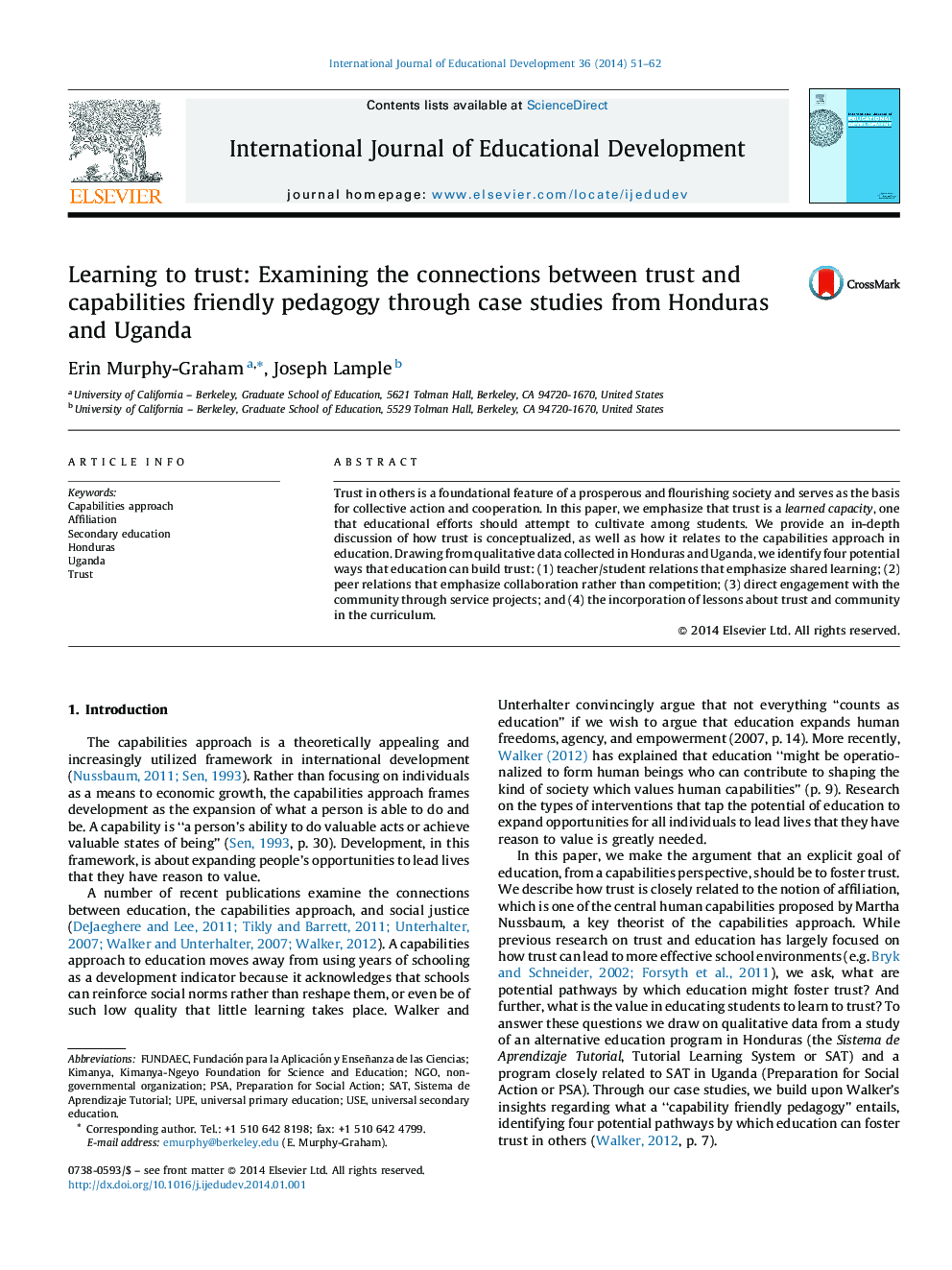| کد مقاله | کد نشریه | سال انتشار | مقاله انگلیسی | نسخه تمام متن |
|---|---|---|---|---|
| 356120 | 1435124 | 2014 | 12 صفحه PDF | دانلود رایگان |
• Conceptualizes trust as a learned capacity that can be cultivated through education.
• Describes how trust relates to the capabilities approach in education.
• Uses qualitative methods to investigate how education can foster trust.
• Examines alternative secondary education programs in Honduras and Uganda.
• Identifies four potential pathways through which education can build trust.
Trust in others is a foundational feature of a prosperous and flourishing society and serves as the basis for collective action and cooperation. In this paper, we emphasize that trust is a learned capacity, one that educational efforts should attempt to cultivate among students. We provide an in-depth discussion of how trust is conceptualized, as well as how it relates to the capabilities approach in education. Drawing from qualitative data collected in Honduras and Uganda, we identify four potential ways that education can build trust: (1) teacher/student relations that emphasize shared learning; (2) peer relations that emphasize collaboration rather than competition; (3) direct engagement with the community through service projects; and (4) the incorporation of lessons about trust and community in the curriculum.
Journal: International Journal of Educational Development - Volume 36, May 2014, Pages 51–62
